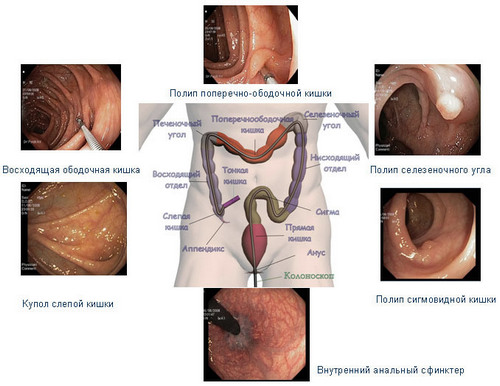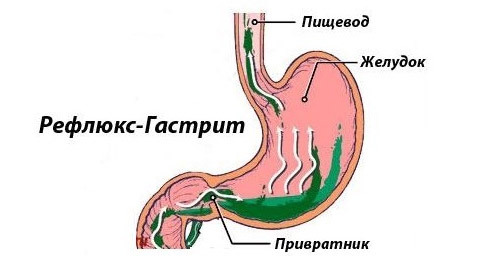Heaviness in the stomach is a common problem that can happen to anyone. Often this disease is associated with overeating or poor diet, but there are many other factors that can cause digestive disorders.
In most cases, they are associated with a poor diet and overeating. Pain and heaviness in the abdomen, often appear after the holidays, accompanied by a feast. An excessive amount of food leads to irritation and stretching of the walls.
This slows the movement of food to organs. Upon such a violation, the person experiences discomfort in the stomach that may be accompanied by bloating, belching and nausea.
Other common causes:
- Often, the discomfort occurs due to poor chewing of food. Gastroenterologists recommend to chew food and not swallow large pieces. Qualitative processing of food with saliva in the mouth contributes to the rapid digestion.
- Failure to comply with the diet. It is recommended to eat small meals every 3-4 hours.
- The use of low-quality and annoying products – another common cause of the feeling of heaviness after eating. To products, irritating the mucous membranes of the stomach and intestines, are sodas, coffee, alcohol, processed foods, fast food. Digestion can also impair fatty, smoked and spicy food, flour products, sweets, legumes, potatoes, mushrooms.
The emergence of a sense of heaviness in the stomach may be caused by factors not related to errors in the diet:
1. Stress is a common cause of digestive disorders. The nervous system is directly involved in regulating and stimulating functions of the digestive tract. Emotional upheaval lead to failure of the contractile activities of smooth muscles. As a result, after eating a person can feel pain in the stomach.
2. At risk include smokers. Tobacco smoke composition of cigarettes disrupts the normal secretion of gastric juice and blood flow to the digestive tract. As a result, the smoker a feeling of heaviness in the abdomen, bloating, belching, vomiting.
3. Heaviness in region of stomach often bothers the elderly. This disease is associated with natural age-related changes in the body. Reduced secretory function is impaired production of bile and intestinal enzymes. By reducing pancreatic secretions complicates the process of digestion, leading to bloating, constipation or nausea.
4. The feeling of heaviness after eating often bothers people who are obese. The increase of the internal pressure in the digestive system leads to bloating, nausea, belching and increased flatulence.
5. Often the unpleasant feeling worried moms. During pregnancy breaks down the process of production of gastric juices and enzymes. All of these changes are the cause of toxicity, which may be accompanied by nausea, vomiting and bloating. However, if the expectant mother stomach inflated after eating and there is difficulty breathing should immediately seek medical attention.
Diseases of the digestive tract
1. Gastritis is an acute or chronic inflammation of the mucous membrane. Disorder characterized by the production of gastric juice and mucus, that perform safety functions. This leads to the appearance of symptoms of disorders of digestion (pain in the solar plexus, feeling of heaviness, heartburn, vomiting, belching). During exacerbation of the manifestations of gastritis, you should immediately refer to a gastroenterologist. Treatment of the gastric mucosa include reception detoksiciruuschee and antiseptic, as well as adsorbents that reduce the symptoms of the disease.
2. Pancreatitis is an acute or chronic inflammation of the pancreas. Often the disease is manifested due to malnutrition. During attacks of acute pancreatitis, the patient is difficult to breathe, he has encircling pain in the lower abdomen. Disease of the pancreas and delay the enzymes in its ducts leads to nausea, belching, bloating, feelings of heaviness. When first signs of acute pancreatitis it is necessary to treat disease under the supervision of a gastroenterologist. In chronic pancreatitis patients shown diet, and supplementation based on pancreatic enzymes.
3. Duodenitis – inflammation of the mucous membrane of the duodenum. The disease can be triggered by food poisoning, malnutrition or mechanical damage to the mucous membranes of the organs. However, in most cases, duodenitis develops on the background of other diseases of the digestive system, so to cure the disease of the duodenal mucosa is possible only by eliminating its cause. Duodenitis is characterized by episodic appearance of gravity at the top of the abdomen, nausea, acute and aching pain.
4. Cholecystitis – inflammation of the gallbladder. In case of cholecystitis, the bile is retained in the ducts of the gallbladder. It causes strong pain, feeling of pressure, increased body temperature.
Late diagnosis of cholecystitis leads to peritonitis. In this case to cure the disease is possible only after removal of pus, but in severe cases, the gallbladder.
Drug therapy
Treatment includes a range of activities aimed at the normalization of digestion and elimination of the causes of the disease. If discomfort in the stomach associated with errors in the diet, for relief of the condition with medication. If the violation occurs in the background of other diseases of the gastrointestinal tract (gastritis, pancreatitis, duodenitis), then you first need to treat the cause of the symptom.

The pill to restore motility of the digestive system.
1. Mezim Forte is enzymatic medication that is used to treat digestive disorders. Contains Pancreatin (pancreatic enzyme) in powder form. Reduces discomfort in the stomach due to the stimulation of the organs of the digestive system with a lack of pancreatic enzymes. Take 1 tablet before meals 3 times a day.
2. Espumizan – drug in the form of drops or capsules, is used for flatulence. Capsules drink after meals for bloating.
3. Festal – based tablets pancreatic enzymes, hemicellulase and components of bile. Used to stimulate digestion and accelerate the metabolism of fats, proteins and carbohydrates. Assigned to treat symptoms of cholecystitis, and gastrointestinal disorders.
4. Panzinorm – on the basis of Pancreatin. Appointed in violation of the secretion of pancreatic enzymes, gastritis, hepatitis and cholecystitis. Restores secretory function and alleviates the symptoms of disease.
5. Smectite – it has an absorbent action. Used for episodic therapy of digestive disorders and addressing the symptoms (heartburn, bloating, fullness, nausea, diarrhea).



